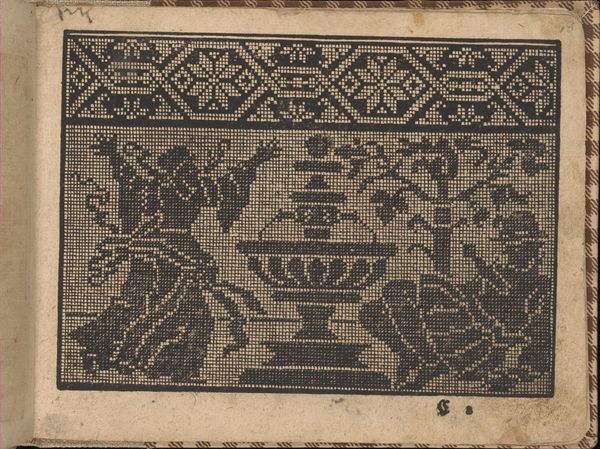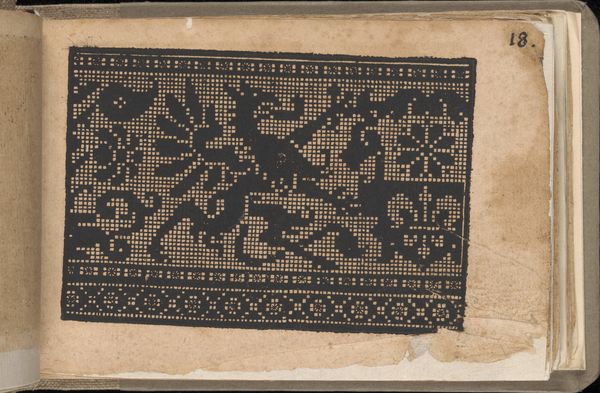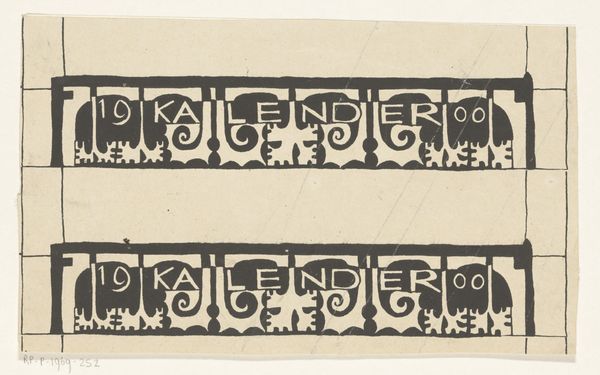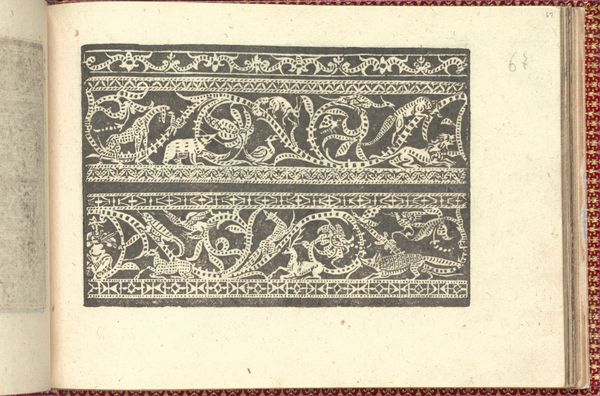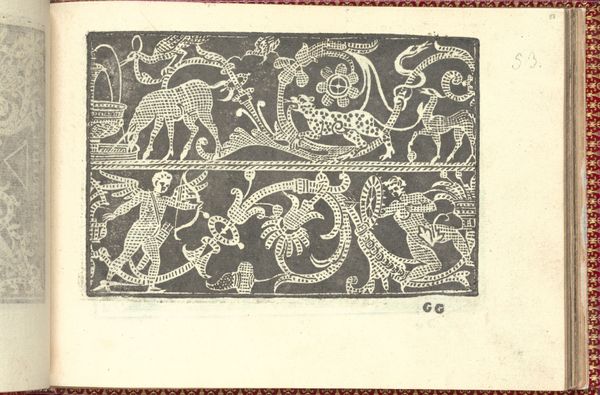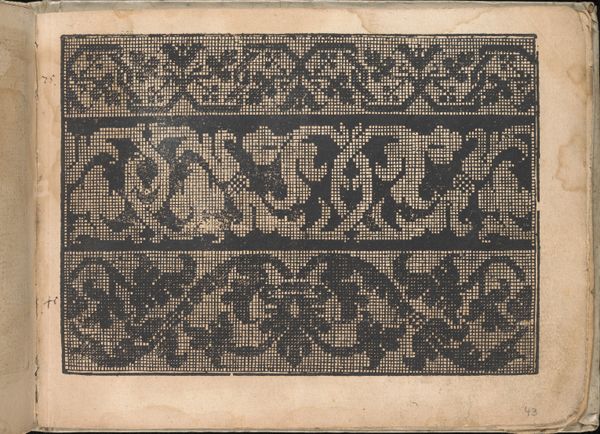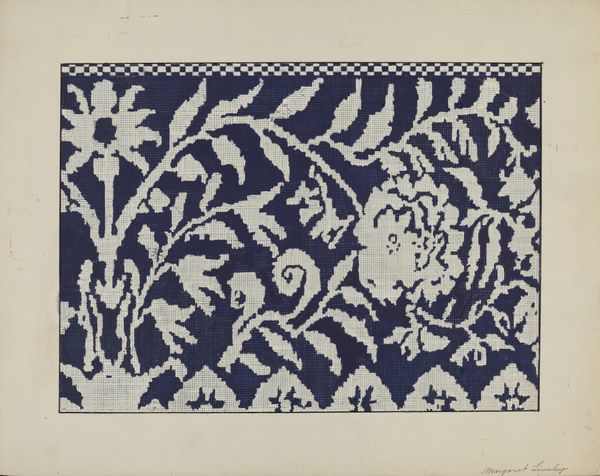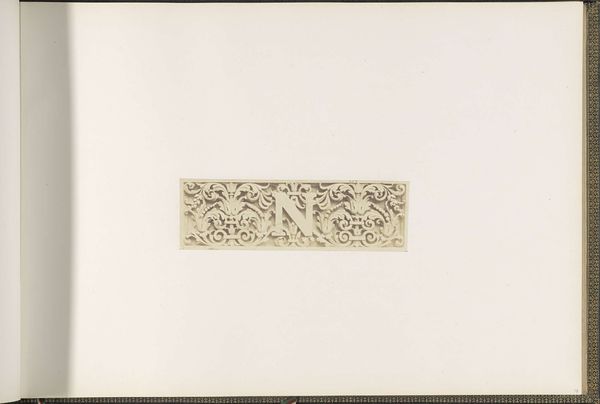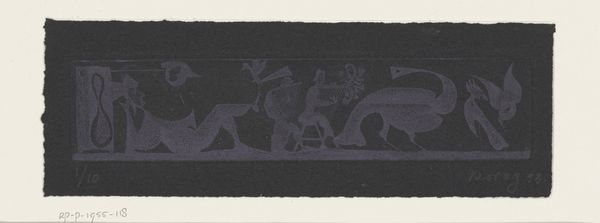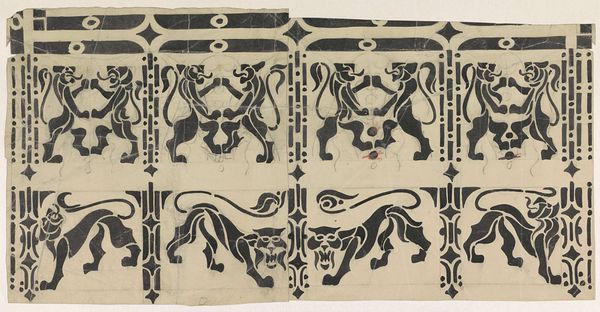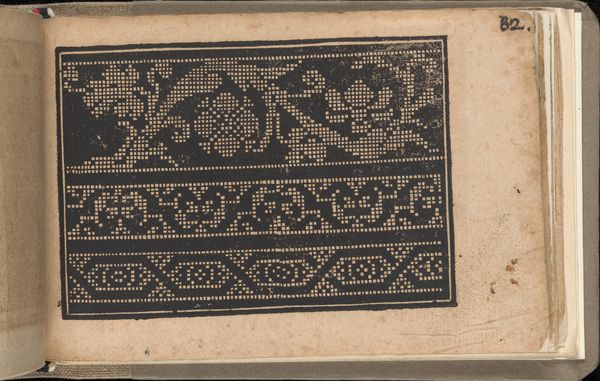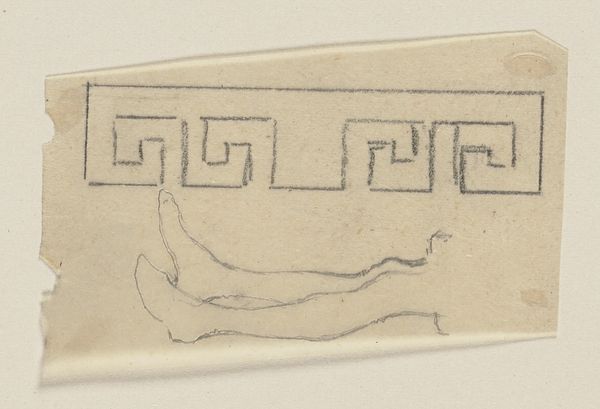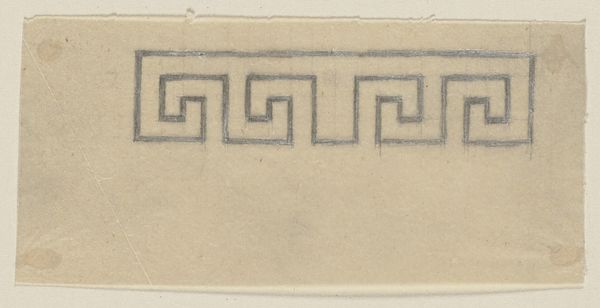
textile
#
textile
#
collage layering style
#
fashion and textile design
#
hand-embroidered
#
embroidery
#
fabric design
#
clothing theme
#
pattern repetition
#
textile design
#
imprinted textile
#
layered pattern
Dimensions: 53 1/2 x 10 in. (135.89 x 25.4 cm)
Copyright: Public Domain
Editor: Okay, so this is an anonymous artwork called "Lace Strip," dating from after 1600. It's textile and it lives at the Minneapolis Institute of Art. The first thing I notice is just the incredible detail! What strikes you when you look at this, Curator? Curator: You know, it whisks me away to a time of elaborate dress and painstaking craftsmanship. Imagine someone's hands, lit by candlelight, meticulously creating this tiny world of fantastical creatures. It’s almost dreamlike, isn't it? Like something you’d glimpse in a fairy tale, but rendered in the finest thread. Editor: Dreamlike is spot on! These creatures – griffins, what looks like a dragon... Were they common motifs? What’s the symbolism at play? Curator: Absolutely. These aren't just decorative doodles; they are heraldic beasts, emblems of power, virtue, and mystery. These images suggest high status or perhaps a family crest. Think of this strip adorning the sleeve of someone important, a visual assertion of their lineage and position in society. Now, looking closer, do you see the little imperfections, the tiny knots? It makes it all the more human. Editor: I do now! And I like that. Knowing it was made by someone, not a machine. Curator: It's a connection across centuries. You realize they probably cursed that knot as they made it. Perhaps this lace even saw some wild stories, what do you think? Editor: Wow, yeah. I hadn't thought about what it might have *seen*. This makes me see textiles – all historical art really – in a whole new way, as silent witnesses to history! Curator: Exactly! Each thread holds a story, a whisper from the past, waiting for us to listen. It is no longer just lace; it’s a captured moment in time!
Comments
minneapolisinstituteofart about 2 years ago
⋮
Knotted net was a textile which had been used by fishers and trappers since ancient times. In the 16th century, refined versions with small grid structures were developed to be used by embroiderers as a ground fabric as they created fashionable new fabrics. Using a simple darning stitch, fanciful patterns, which related to the popular design aesthetic of the day, could easily be developed. As can be seen by the examples displayed here, a variety of colors and materials were used, but linen white work was particularly popular. This embroidery technique, frequently associated with lace styles, is often called lacis.
Join the conversation
Join millions of artists and users on Artera today and experience the ultimate creative platform.
